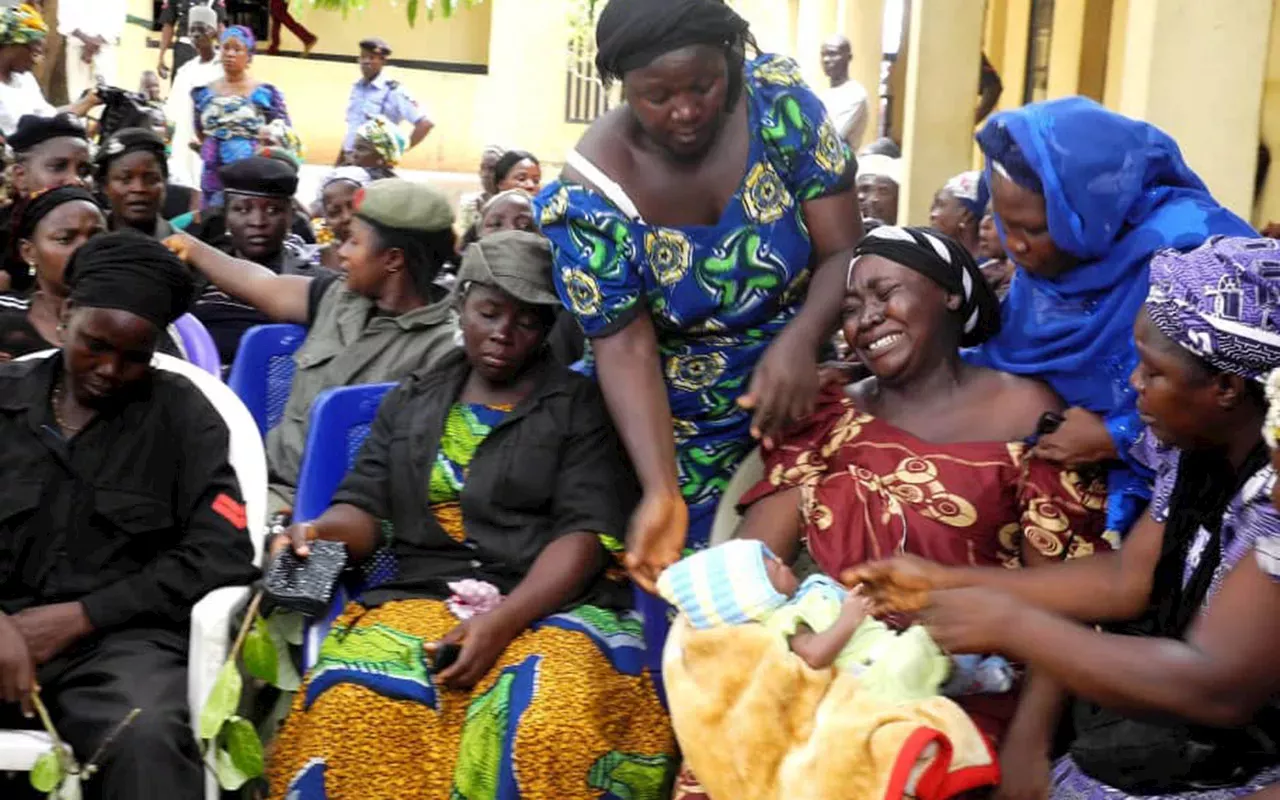Being a widow is a universal phenomenon that happens when a woman loses her spouse. This condition brings different experiences for different women, depending on their economic status, family size, employment status, cultural heritage, environment, religious beliefs and educational background.
Given the insecurity in Nigeria and men of the disciplined agencies recording casualties on all fronts, more of their loved ones are now exposed to widowhood and its heart-wrenching conditions, NGOZI EGENUKA reports.
She recounted that whenever she asked her elder brother for support, he would tell her to relocate to the village. With no help coming forth, she changed her children’s school to a tuition-free government-owned facility. Asked whether the family dumped her, Zion said her husband was the pillar of his family and his family stripped her of his belongings after he died. Her consolation is that her children are growing and there is hope for them.
She must face the odds daily, as she is still trying to get over the loss, because in her words, “I have lost my best friend. The only person I was licensed to disturb because he was my own.” “Immediately he died, I had to start planning to leave the accommodation at the base because people were already interested in it. So, I didn’t wait to be pushed out and someone is currently occupying the house,” she said.
According to conversion.com, an international research agency, Nigeria is home to about 15 million of the world’s 258 million widows. Traditionally, in countries like Nigeria, which is a patriarchal society, where men represent the family lineage, becoming a widow puts a woman in a disadvantaged position.
Indeed, widows in Africa have had to bear the brunt of maltreatment, ranging from economic exploitation, verbal abuse, cultural malpractices, disrespect, delay in receiving their late husbands’ entitlements, physical abuse, negligence as well as emotional or psychological exploitation. These experiences make widows vulnerable to stigmatisation, depression, isolation, and suicide.
To ascertain the number of widows, the President of the Military Widows Association , Veronica Aloko, said they are in the thousands. She lamented that her late husband’s younger brother seized from her, building materials she was using to renovate a house she wanted to put up for rent as a source of income. “He threatened that the house would crumble like the wall of Jericho in the Bible and as I speak to you, that is the state of the house.”
There are no specific laws that speak against the ill-treatment of widows in Nigeria. Recently, however, there has been an introduction of a bill named the Widows Protection Bill 2020. Several articles of “The Protocol” call attention to widow’s rights. For example, Article 2 prohibits discrimination that endangers the health and general well-being of women. Article 2 , deals with the elimination of harmful cultural and traditional practices, while articles 3 and 4, which deal with the rights to dignity, life, integrity and security of persons respectively, ensure that women such as widows are treated in a respectful, humane and non-degrading manner.
It is reported that under Cameroon’s patriarchal customary law system, a widow has only user rights because she is considered “property” and “property cannot inherit property”. In addition, the fear of witchcraft makes it impossible for a widow to enjoy her right of administration. He, however, said that for all personnel of the armed forces, gratuity is not processed by the force but by the Military Pensions Board.
“The timing of these things is not cast in stone, and everyone understands what it means to lose a husband or wife in service and we take cognisance of the sacrifices they have made to the protection of life and property. In the Air Force, we don’t separate with the families of our deceased because we still see them as a part of the larger Nigerian Air Force family,” he said.
The founder of Almanah Hope Foundation, Hope Nwakwesi, believes that advocacy should be a core action to drive change in widow’s experiences. Exposure, education, and information are important to counter our culture of silence and secrecy, which remains the reason for the downward transmission of the culture of abuse.
A medic at Gaza's largest hospital said Friday a humanitarian airdrop in the north of the Palestinian territory killed five people and wounded 10.
